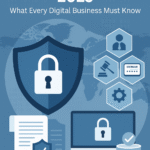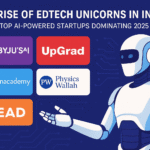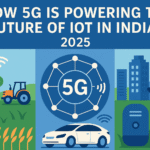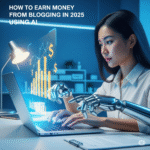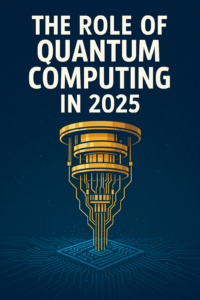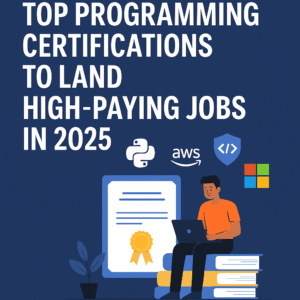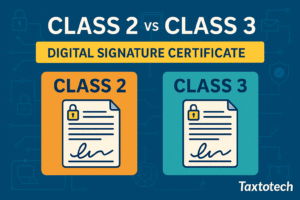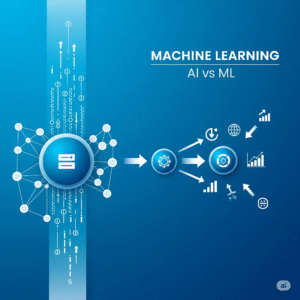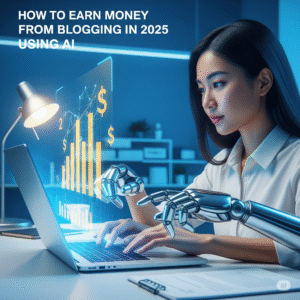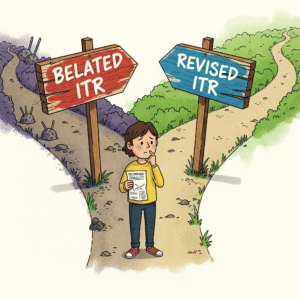Hello, Taxtotech Readers! Lets learn about Future of the IT Sector Globally!
Have you ever paused to wonder if the science fiction of yesterday is becoming the reality of our tomorrow? From automated assistants that anticipate our needs to interconnected cities that breathe and think, we are standing on the precipice of a monumental technological revolution. The very fabric of our world is being rewoven by digital threads, and at the heart of this transformation lies the ever-evolving IT industry. Understanding these changes isn’t just for tech gurus anymore; it’s crucial for every forward-thinking individual and business. In this detailed exploration, we will unveil the top 5 technologies that are not just trending but are actively shaping the future of the IT sector across the globe. With insights from our experts at Taxtotech, we’ll guide you through what’s coming next and how you can stay ahead of the curve.
The global IT landscape is a dynamic and exhilarating space, projected to soar past the $10 trillion mark by 2030. This incredible growth is fueled by a relentless wave of innovation. While many technologies are making headlines, five stand out for their profound and transformative potential. These are the game-changers, the titans of tech that promise to redefine industries, reshape economies, and revolutionize our daily lives. Join us as we journey into the heart of this new digital age.
1. Artificial Intelligence (AI) and Machine Learning (ML): The Brains of the New Digital World
Artificial Intelligence and its powerful subset, Machine Learning, are undoubtedly the reigning forces steering the future of the IT sector. No longer confined to academic theory, AI is a tangible force optimizing everything from global supply chains to your personalized streaming recommendations. It’s the engine of automation, the architect of intelligent systems, and the key to unlocking unprecedented levels of efficiency and insight from vast oceans of data.
AI’s impact is multifaceted. In business, it’s powering predictive analytics for smarter decision-making, automating mundane tasks to free up human creativity, and creating hyper-personalized customer experiences that drive loyalty. For IT professionals, AI is a double-edged sword of opportunity and demand. It automates backend processes, predicts system failures before they happen, and provides a formidable defense against ever-evolving cybersecurity threats. As a testament to its growth, the AI market is expected to skyrocket to nearly $1.6 trillion by 2030.
At Taxtotech, we see AI not as a replacement for human ingenuity but as a powerful collaborator. Our teams are harnessing AI to deliver smarter, faster, and more secure IT solutions, helping businesses navigate the complexities of digital transformation.
Global AI Adoption Leaders
The race for AI supremacy is on, with nations worldwide investing heavily in research, development, and infrastructure. This strategic push is creating hubs of innovation that are magnets for talent and capital. The United States and China are currently leading the charge, but other nations are making significant strides, creating a vibrant and competitive global ecosystem.
| Country | Key AI Strengths & Initiatives | Description |
| United States | Research & Development, Private Investment, Talent Pool | Home to the world’s leading tech giants and a thriving startup scene, the U.S. excels in foundational AI research and attracting top-tier talent. It leads in AI-related private investment and boasts the most advanced AI ecosystem. |
| China | Government Funding, Patent Filings, Data Abundance | China’s national AI strategy is backed by massive government investment. The country leads in the sheer number of AI patent filings and leverages its vast population to generate enormous datasets, which are crucial for training ML models. |
| India | Skilled Workforce, IT Services Integration, Startup Growth | India is rapidly emerging as a global AI powerhouse, ranking high in AI skill penetration and the number of AI startups. The nation’s robust IT services industry is a key vehicle for deploying AI solutions globally. Taxtotech is proud to be part of this growth story. |
| United Kingdom | Strong University Research, Ethical AI Frameworks | The UK benefits from world-class universities driving AI research. It has also taken a leading role in shaping the conversation around AI ethics and regulation, including the influential EU AI Act. |
| Canada | Government Support, Deep Learning Pioneers | Canada has established itself as a leader in AI research, particularly in deep learning, thanks to strong government backing and the presence of pioneering AI academics and institutions. |
2. Quantum Computing: The Dawn of Unprecedented Power
If AI is the brain, Quantum Computing is the leap into a new dimension of thought. While still in its nascent stages, the potential of quantum computing represents one of the most profound shifts in the future of the IT sector. Classical computers, which use bits (0s or 1s), are dwarfed by quantum computers that use ‘qubits.’ A qubit can be a 0, a 1, or both simultaneously (a state known as superposition). This allows quantum machines to solve complex optimization, simulation, and cryptography problems that are currently intractable for even the most powerful supercomputers.
The implications are staggering. Quantum computing could revolutionize drug discovery and materials science by simulating molecules with perfect accuracy. It could optimize global logistics on a scale never seen before, create unbreakable encryption methods, and supercharge AI algorithms. While widespread commercial use is still some years away, the race to build a fault-tolerant quantum computer is a global priority.
Nations at the Forefront of the Quantum Leap
The immense strategic importance of quantum computing has led to a global race for quantum supremacy, marked by significant government and private sector investment.
| Country | Quantum Technology Focus | Description |
| China | Government Investment, Quantum Communication | China has made quantum technology a cornerstone of its national strategy, allocating over $15 billion in funding. It has achieved significant milestones, particularly in quantum communications and satellite-based quantum cryptography. |
| United States | Private Sector Innovation, Diverse Research | The U.S. ecosystem is driven by both government initiatives and fierce competition among tech giants like IBM, Google, and Microsoft. The focus is broad, spanning hardware development, quantum algorithms, and software. |
| Germany | Industrial Application, Public-Private Partnerships | Germany is investing heavily to translate quantum research into practical industrial applications, fostering strong collaboration between research institutes and its powerful manufacturing and automotive sectors. |
| Japan | Materials Science, Superconducting Qubits | Japan is leveraging its historical strength in materials science and electronics to make significant contributions to quantum hardware, particularly in the development of high-quality superconducting qubits. |
3. Blockchain and Distributed Ledger Technology (DLT): The Foundation of Trust
Beyond the volatile world of cryptocurrencies, Blockchain technology is emerging as a foundational pillar for the future of the IT sector, promising a new era of security, transparency, and decentralization. At its core, a blockchain is an immutable, distributed digital ledger. Once a transaction is recorded, it cannot be altered, creating a permanent and verifiable record visible to all permissioned participants.
This “trust machine” has applications far beyond finance. It’s poised to transform supply chain management by providing an unalterable record of a product’s journey from origin to consumer. In healthcare, it can secure patient data, giving individuals control over their own medical records. Blockchain-based smart contracts—self-executing contracts with the terms of the agreement directly written into code—are automating and securing complex agreements without the need for intermediaries.
For a deeper dive into how our services can secure your digital assets, explore the solutions offered at Taxtotech. We believe that building on a foundation of trust is key to digital success. Visit us at https://taxtotech.com to learn more.
4. Internet of Things (IoT) and Edge Computing: A Universe of Connected Intelligence
The Internet of Things (IoT) is the rapidly expanding network of physical objects—from smartwatches and home appliances to industrial sensors and connected vehicles—that are embedded with sensors and software to connect and exchange data over the internet. This technology is creating a seamless fabric of connectivity, with the global IoT market projected to exceed $17 trillion by 2037.
However, sending all this data to a centralized cloud for processing can be slow and inefficient. This is where Edge Computing comes in. Edge computing brings computation and data storage closer to the sources of data. By processing data locally on an IoT device or a local “edge” server, it reduces latency, saves bandwidth, and enables real-time responses. This combination is critical for the future of the IT sector, especially for applications like autonomous vehicles, smart factories (Industry 4.0), and real-time patient monitoring in healthcare.
5. Next-Generation Connectivity (5G and the Dawn of 6G): The Superhighway for Data
None of these transformative technologies can reach their full potential without a robust, ultra-fast, and reliable communication network. 5G is the current standard, offering exponentially faster speeds, lower latency, and greater capacity than 4G. This enables the massive data transfers required by IoT networks, provides the real-time responsiveness needed for edge computing, and supports high-quality streaming for AR/VR applications.
But technology never stands still. Even as 5G deployment continues globally, researchers are already working on 6G. Expected to roll out in the 2030s, 6G promises to be another quantum leap forward. It aims to deliver speeds up to 100 times faster than 5G, with near-zero latency. More importantly, 6G is envisioned as a platform that will merge the physical, digital, and biological worlds, enabling truly immersive experiences like holographic communication and creating an intelligent network fabric that can sense and respond to its environment.
Leading this charge are countries that have prioritized building out their digital infrastructure. Nations like China, the United States, and South Korea have been aggressive in their 5G rollouts, understanding that this connectivity is the bedrock of the future digital economy.
Conclusion: Navigating the Future with Taxtotech
Dear Taxtotech Readers, the future of the IT sector is not a distant dream; it’s being built today. The convergence of AI, Quantum Computing, Blockchain, IoT, and Next-Gen Connectivity is creating a wave of change that is both exciting and challenging. For businesses, the key to survival and success lies in understanding these technologies and strategically adopting them to innovate and grow. For individuals, it means embracing lifelong learning to stay relevant in an increasingly automated world.
At Taxtotech, we are more than just an IT service provider; we are your partners in innovation. We are committed to demystifying these complex technologies and providing you with the tools and expertise to thrive in this new era. The journey ahead is filled with limitless possibilities, and we are here to help you navigate it with confidence.
Frequently Asked Questions (FAQ)
1. What is the most important technology for the future of the IT sector?
While all five technologies are crucial, Artificial Intelligence (AI) and Machine Learning (ML) are arguably the most impactful right now. Their ability to automate processes, generate insights from data, and power intelligent systems makes them a foundational element for the advancement of all other technologies.
2. How will the future of the IT sector affect job opportunities?
The future of the IT sector will create a significant shift in the job market. While automation may replace some routine tasks, it will also create a massive demand for new roles in areas like AI ethics, quantum algorithm development, data science, IoT architecture, and cybersecurity. The emphasis will be on creative, strategic, and complex problem-solving skills.
3. Is Blockchain only for cryptocurrencies like Bitcoin?
Absolutely not. While Blockchain gained fame through cryptocurrencies, its core technology of a secure, decentralized ledger has vast applications. It’s being used to secure supply chains, manage healthcare records, verify digital identity, and create transparent voting systems, among many other things.
4. When will Quantum Computing become a mainstream reality?
Experts believe that we are still 5-10 years away from having large-scale, fault-tolerant quantum computers that can solve major commercial problems. However, smaller-scale quantum processors are already available via the cloud, and companies are beginning to experiment with them for research and optimization tasks.
5. How can my business prepare for these technological changes?
Preparation involves a multi-pronged approach:
- Educate: Foster a culture of continuous learning within your organization.
- Strategize: Identify which technologies can solve your most significant business challenges.
- Experiment: Start with small pilot projects to understand the practical implications.
- Partner: Work with experts like Taxtotech who can provide guidance and technical expertise to help you on your digital transformation journey.
We hope this deep dive has been insightful! What technology are you most excited about? Share your thoughts in the comments below, and don’t forget to share this article with your network!


